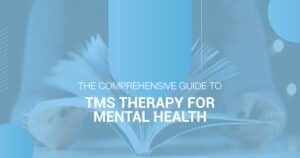Sometimes life is fantastic. And then there are those other times, where nothing is going well, and life becomes not so fun, and the depression comes.
For some, they are lucky enough to have people in their life they can turn to who may understand what they are feeling and are going through, and may even have kind advice.
But for many, they come from a family or a culture that looks down upon depression and and any discussion of mental health and happiness is not something that would happen.
What can you do then?
There is plenty.
Talk to a professional
If you’re depressed, it can be hard to reach out for help. You may feel ashamed or embarrassed. You may be afraid of being judged or misunderstood. Or you may just feel too tired to talk about what’s going on.
If you can’t talk to anyone else about your depression, you can talk to a professional mental health therapist or IOP counselor at a treatment center about your feelings and thoughts.
Mental health therapists are trained to listen without judgment, help you identify new ways of thinking and behaving, and work with you on goals that will improve your quality of life.
If you have insurance, mental health counseling is often covered as part of your plan’s benefits package (though there may be co-pays). If not, most private insurers will cover up to 20 sessions per year if they deem it medically necessary. And if all else fails, there are low-cost clinics and community mental health centers available throughout the country that offer affordable services on a sliding scale basis.
Finding the right therapist or counselor for you is important because not all therapists are created equal — some have more training than others; some specialize in treating certain issues like depression; some may fit better with your personality than others; some are more experienced than others;
Take care of yourself.
If you can’t talk to your family about your depression, there are still things you can do to take care of yourself. You may not be able to see a therapist or get help from doctors right now, but there are other ways of taking care of yourself.
- Talk to someone you trust who understands what it’s like for someone with depression and anxiety–whether they’re in your life or not. It could be a friend, sibling or cousin; perhaps they’ve gone through something similar themselves and would be willing to listen when no one else will listen (or even when they do). Having someone like this around is so important because sometimes just talking out loud helps us understand ourselves better than we ever could have imagined before!
- If talking isn’t an option for whatever reason then try writing down all the thoughts going on inside that head of yours as these might come across as less threatening than verbalizing them out loud which could lead into an argument between both parties involved.”
Find a support group.
A support group is a great way to connect with others who are going through similar experiences. You can talk about your depression, share tips for coping and learn about treatment options.
Members of the group will understand what it’s like to live with depression because they’ve experienced it themselves. They may be able to give you advice on how they manage their own symptoms or how they feel when they’re depressed.
Support groups don’t necessarily need to be formalized; in fact, some people find that unstructured groups work better than those led by professionals or therapists because there’s less pressure on everyone involved.
Learn more about depression and recovery.
If you’re not ready to talk about your depression, there are other ways of educating yourself. Learning more about the condition can help you understand what it is and how best to manage it.
- Read books or articles about depression and recovery–it’s easy enough to find information online, but if there’s a topic that interests you (e.g., “Overcoming Depression with Exercise”) then reading a book on that subject can be more effective than skimming through an article online. Books also have the advantage of being able to go into more depth; they often have multiple authors who have different perspectives on their topic which allows them to explore it in greater detail than an article written by one person would allow.*
Find an activity that helps you feel good about yourself.
Finding something you enjoy is essential to combating depression. It can be anything, from painting to playing video games or volunteering in your community. The key is finding an activity that makes you feel good about yourself and gives you a sense of purpose.
If none of these sound like something that would work for you, try exploring new hobbies until one sticks! If there’s no pressure on finding “the right” hobby yet (because there isn’t), it will be easier for your brain to relax into whatever activity seems most interesting at the time.
Plan a break.
- Take a break from social media.
- Take a break from your phone.
- Take a break from your family.
- Take a break from your job and other obligations, if you can manage it (if not, try to make time for yourself during the day).
- If it’s possible, take a break from the world by going somewhere quiet and relaxing where there is no internet or cell service–even just for one night!
Be there for other people.
When you’re feeling depressed, it can be hard to see past your own problems. But if you can’t talk about your depression with family members or friends, there are still things you can do to help others:
- Give back. Volunteer at a soup kitchen or homeless shelter; donate clothes or books; offer emotional support for someone who’s going through something difficult (like a divorce). The simple act of giving is one way to feel better about yourself and make yourself feel less alone in this world.
- Ask for help when needed–and don’t be afraid to ask again! If someone offers their assistance but doesn’t follow through on their promise, ask again until they come through with what they promised (or find someone else). You may want help cleaning the house after work one day; instead of doing it yourself because that’s easier than asking someone else over and over again until they actually show up like they said they would… ask again! It’s important not only because asking shows vulnerability but also because sometimes people forget promises made–and even if they don’t forget entirely then maybe just getting another chance will make all difference between success versus failure when trying out new ways at life.”
You are not alone and you can get through this
You are not alone. Depression is a common illness, affecting one in five people at some point in their lives. But it’s often difficult to talk about, especially with family and friends who don’t understand what you’re going through. You may feel like you have no one to turn to or that you worry too much about disappointing them by admitting how you feel.
You can get through this! There are many ways of getting support if depression has come into your life:
- Take care of yourself – try not to isolate yourself from others as this can make things worse;
- Find someone who understands what depression is like and can listen without judgement;
- Learn more about depression and recovery;
- Find an activity that helps you feel good about yourself (even if just for 10 minutes).
Conclusion
If you can’t talk to your family about your depression, it’s important to take care of yourself. You may feel alone in this struggle and think that no one understands what you’re going through. But there are many resources available to help people with depression and their families! You just have to find them and use them.
If you have any questions about any these treatments, please give us a call anytime at 310-571-5957 or email at info@clearmindtreatment.com
www.ClearMindTreatment.com









